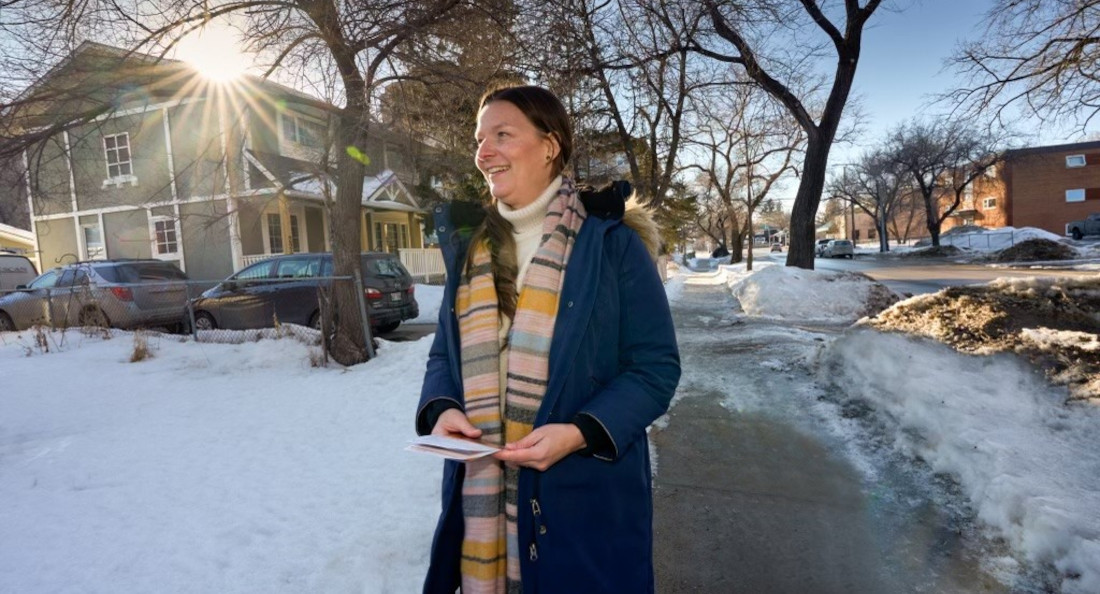New environmental minister changes lanes
One green city
During this past provincial election, the Progressive Conservative Party and NDP battled over healthcare, crime and homelessness. The parties mostly left the environment out of the discussion.
Seemingly, the topic was out of the debate, out of mind. According to a Probe Research survey, only four per cent of Manitobans mentioned the environment as one of their top three concerns facing the province.
With most of the attention elsewhere, it’s hard for Manitobans to know what to expect from the new NDP government in terms of climate action.
The NDP named Tracy Schmidt, a firsttime MLA representing Rossmere, as the new environment and climate-change minister.
Schmidt previously worked as a lawyer in labour and employment law but doesn’t have a background in environmental work.
However, Jessica Kelly, a senior policy advisor from the International Institute for Sustainable Development, isn’t overly concerned. Kelly says Schmidt’s experience with labour law could be an asset when it comes to transitioning to green jobs.
“It’s not a bad thing to have fresh legs in this journey. (Schmidt) is clearly a bright and accomplished woman. I think it’s great that she has legal background and expertise, because it can be a complicated file in terms of jurisdiction,” Kelly says. “I say, give her time. Like any minister worth her salt, she’s going to be listening to experts around her.”
Kelly is more concerned about the consistent churn of new environmental ministers. In the seven years the Manitoba PCs held power, five different politicians held the title of environmental minister. She says if the person in charge of the file is always changing, it becomes increasingly difficult to build relationships with community groups, Indigenous communities and municipalities.
So far, Kelly feels hopeful about what she has read from the NDP’s climate plan. Terminology like “roadmap to netzero,” “investments into geothermal energy” and “making promises to partner with Indigenous communities” suggests that this government is at least keeping the health of the environment in mind.
“That’s the type of language and leadership we are hoping to see more of,” she says, “and it’s language we haven’t seen from the past government.”
In comparison, this year, the Manitoba PC environmental policy included quickly opening more mines across the province, fighting against the carbon tax and improving fuel costs for consumers. Then-premier Heather Stefanson championed the idea that Manitoba should be exempt from federal emissions targets, since it is one of the least-polluting energy systems in the country.
She failed to mention that Manitoba and Alberta are the only two provinces that released more carbon pollution in 2021 than in 1990. While other provinces may be emitting more carbon than Manitoba, they are at least moving in the right direction.
If Kelly were advising the NDP government, she would recommend they look into how individuals can decarbonize their day-to-day lives.
While much of Manitoba’s energy comes from the hydroelectric grid, many homes are still heated by gas, and most vehicles still run on fossil fuels.
Investing in active transportation, electrifying vehicles or equipping homes with geothermal heat pumps are a few ways the NDP can reduce energy consumption.
“We are encouraged by what we see. It’s not the time to take our foot off the pedal. There’s a getting up to speed, but we are running out of roadway. It’s important to keep pushing ahead to move us into clean energy,” Kelly says.
Allyn Lyons grew up on Treaty 1 territory. It’s pronounced uh-lyn lions.
Published in Volume 78, Number 09 of The Uniter (November 9, 2023)







